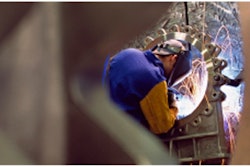LONDON (PRWEB) — The Meat Processing industry is expected to be hampered by the huge disruptions caused by the horsemeat scandal in the short term and costs in the form of more expensive domestic meat inputs, supply chain overhaul and potentially DNA testing will hit hard.
The Meat Processing industry has been cut down to size over the past five years. The industry's principle products – beef, lamb and pig meat – have all suffered from slight declines in consumption over the period, in line with higher prices. According to IBISWorld industry analyst Patrick Ross, “A principle trend over the past 20 years has been the preference for poultry over red meat, with poultry consumption doubling and red meat consumption remaining fairly static”. Consumers have also been forced to scale back, purchasing lower quality meats in accordance with lower levels of disposable income caused by the recession. This added to the applicability of the shocking news that horse DNA had been discovered in a Tesco Value frozen beef burger product. An investigation by the Food Standards Agency uncovered a wider spread of contaminated produce, with other European countries generating similar results. Although most of the horsemeat sources were found to be domiciled abroad, two members of the UK meat supply chain were raided by the Food Standards Agency and were investigated by police on suspicion of introducing horsemeat into the supply chain. No major processors were implicated, but the fallout from the scandal is expected to have a resounding impact on the industry as a whole. IBISWorld estimates that industry revenue will contract at a compound annual rate of 0.9% over the five years through 2013-14, to reach £5.5 billion. Industry revenue is expected to decrease by 6.0% over the current year.
The industry is expected to be hampered by the huge disruptions caused by the horsemeat scandal in the short term. Costs in the form of more expensive domestic meat inputs, supply chain overhaul and potentially DNA testing will hit hard. Ross adds, “The industry could be hit with regulatory measures from the UK government or the European Union following on from a wide-ranging review instigated by the government, but changes will have to be made to restore trust nonetheless”. The overpriced pig meat market will also weigh heavily on performance. However, the UK economy is expected to recover slowly. This, along with continued population growth and a steadfast tradition in red meat consumption, will lessen the damage. Scientific influences, including global warming policies and artificial meat research, will begin to capture attention in the industry. IBISWorld estimates the impact of all these factors will see industry revenue continuing to decrease over the five years through 2018-19.
In 2013-14, the four largest companies are forecast to account for about 31.3% of total market share, giving the Meat Processing industry a medium level of market share concentration. Major companies include Cranswick, 2 Sisters Food Group and Hilton Food Group.
For more information on the Meat Processing industry, including latest industry trends, statistics, analysis and market share information, purchase the full report from IBISWorld, the nation’s largest publisher of industry research.






















